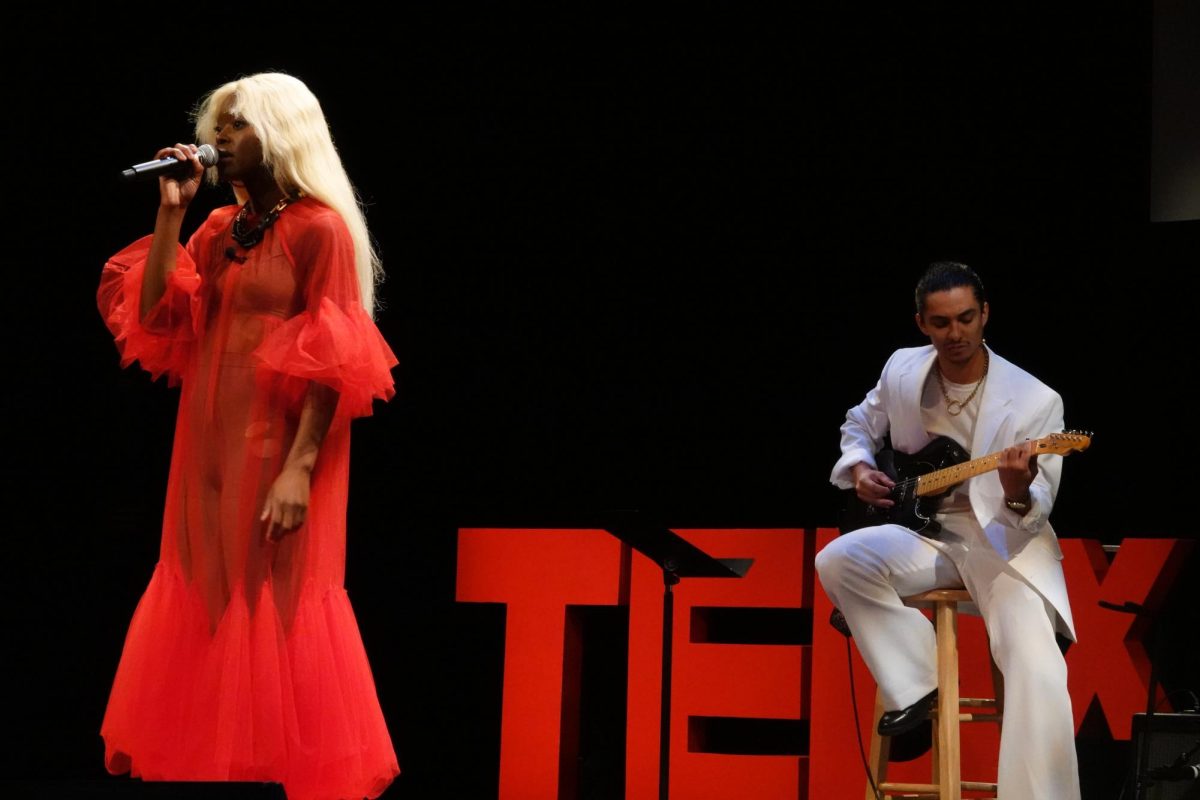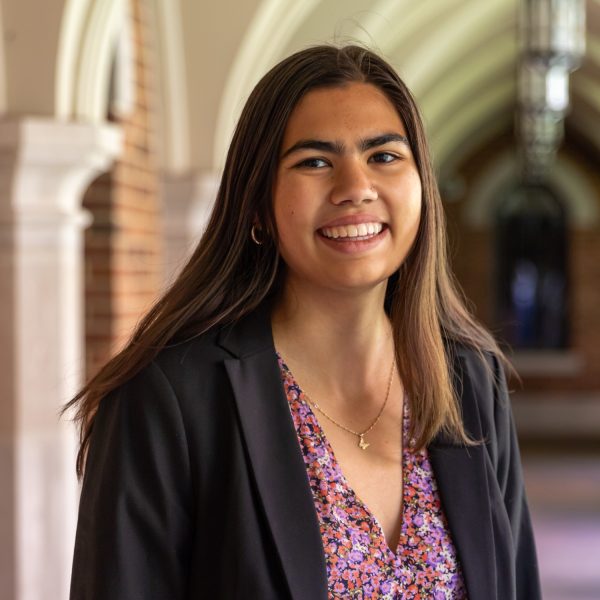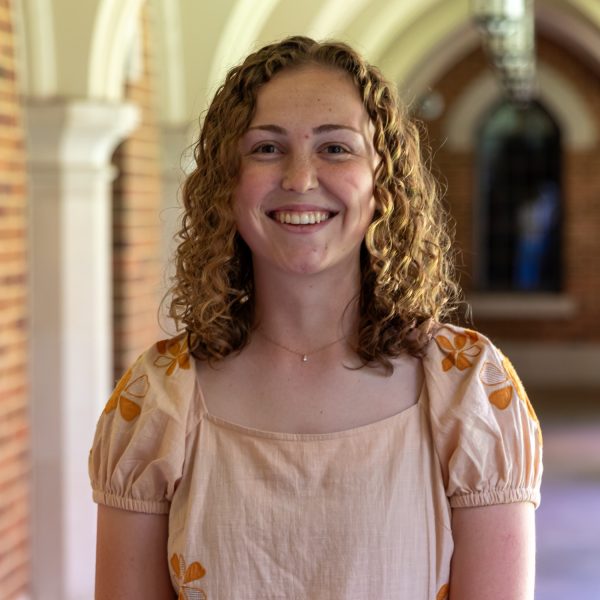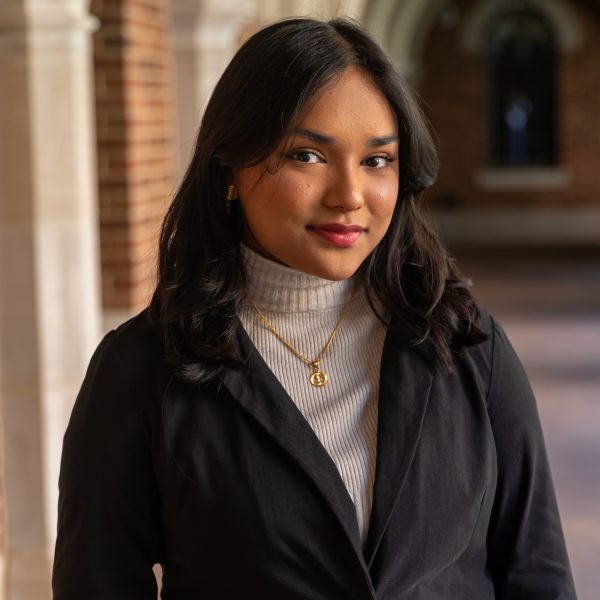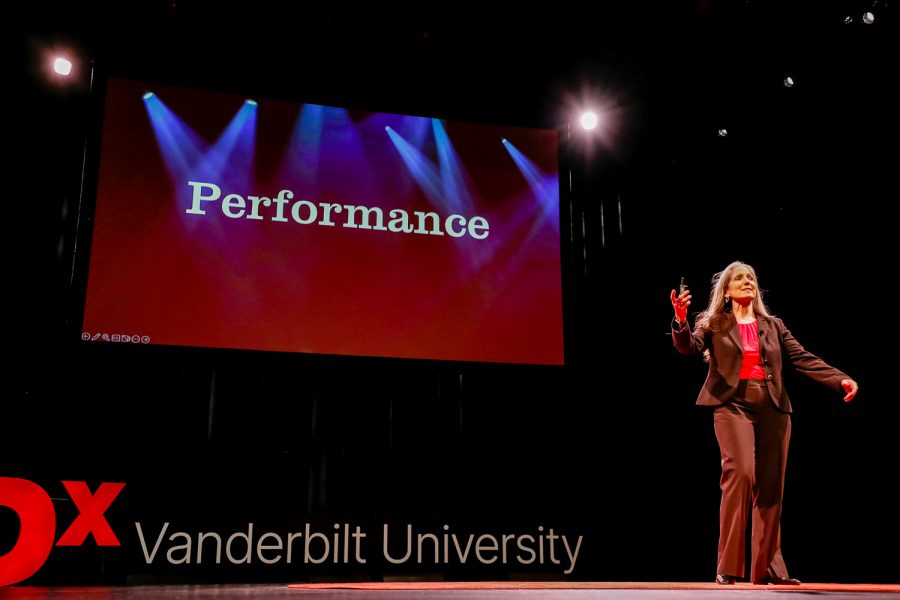Editor’s note: This piece contains mentions of sexual assault.
TEDxNashville Women returned after a three-year hiatus on Nov. 2 and was hosted by the Blair School of Music in Ingram Hall with the theme “In Good Company.” One of TEDxNashville’s two annual events, TEDxNashville Women brought together various speakers and audience members from Middle Tennessee to discuss women’s empowerment and diversity.
Speakers came from industries spanning music, finance, media, business, medicine and athletics. The sold-out venue was filled by a majority female audience, according to TEDxNashville president Jeremy Snow (MTS ‘11).
“It’s not about famous speakers, not about how many views we get on YouTube. It’s about getting a room together of people who are curious,” Snow said in the event introduction. “The way things are is not the way they have to be.”
Snow, who leads TEDxNashville as a volunteer, spearheaded the event.
“As we started the process this year, we worked hard to build a community around it,” Snow said. “One of the things that we did this year that has helped so much is that we had a steering committee, and there were 35 women in leadership all across the city, in different sectors and they met to talk about topics and speakers and what they wanted to see at an event like this. We’ve been working on it since about February.”
While the focus of the TEDx Women event was the speakers, it also included a reception that offered networking opportunities and an online platform for the audience to share their reactions to the speeches.
After Snow welcomed attendees, Ashley Brooke James and Elizabeth Moore — co-founders of the event company TRILUNA — introduced the first speaker, Sonia Leigh.
Leigh’s talk drew on her experience of rejection after coming out to her family as lesbian when she was 17. Leigh, interspersing her speech with her music, spoke on how music, empathy and forgiveness carried her through getting kicked out of her home at 17 and eventually reconnecting with her family.
“You may be surprised what bridges can be built when you unconditionally respect each other’s differences,” Leigh said.
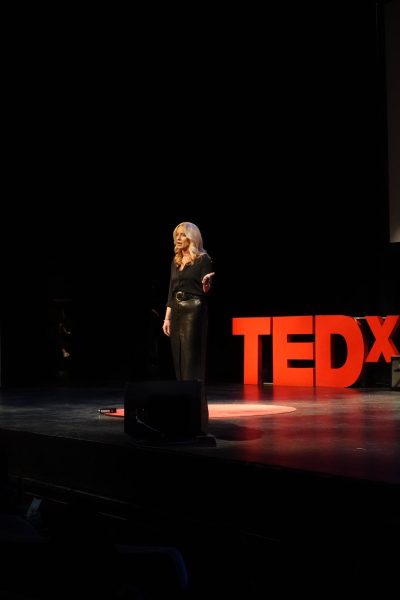
Financial advisor Molly Cloud spoke next, urging the audience to get involved in more financial discussions with their partners.
“Men feel worthy of these conversations because they’ve been in them [forever],” Cloud said. “Women, on the other hand, have been for the most part excluded from financial discourse for much of history.”
Provost and Vice Chancellor for Academic Services C. Cybele Raver introduced the third speaker, VUMC assistant professor of obstetrics and gynecology Lara Harvey. She discussed the anthropology behind postpartum motherhood. Harvey argued for education for pregnant women on ways the body and brain change after childbirth, especially on how these shifts have helped mothers protect their children throughout human evolution.
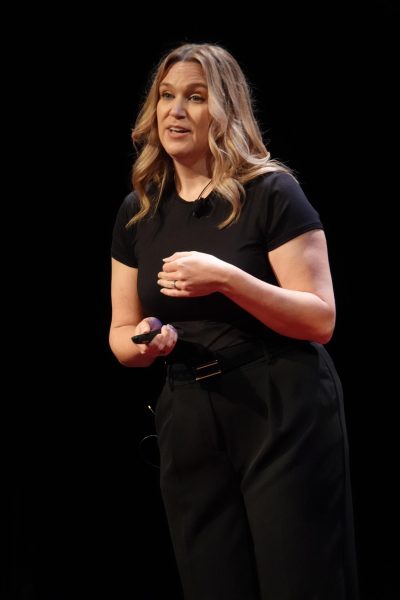
“The organizers were reaching out to their networks, and one of my fellow professors, Dr. Bob Webster, who has done a TED Talk before suggested this to me,” Harvey said after the event. “I met with the organizers, and we ran through some topic ideas. I chose [the anthropology behind motherhood] because it is something that I’ve just had a hobby for off and on for some years, so it seemed like a good opportunity to try to coalesce it into some clips.”
After Harvey spoke, Nada Taha, who began her career in journalism and currently works as a music radio host at Apple, closed out the first half of the afternoon by reinventing what determines worth. Taha graduated with two bachelor’s degrees at 18 and shared how she grappled with a “relentless” work ethic while trying to pursue the “American dream” as a first-generation Egyptian American.
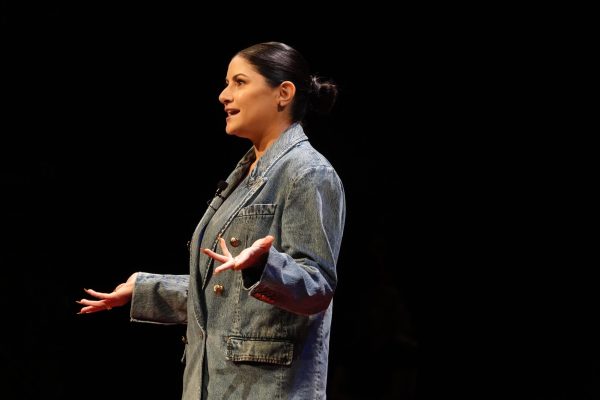
Taha spoke about the burnout she faced at age 32 and how she began to embrace all of her passions, emphasizing a Shakespearean cliché.
“‘Jack of all trades, master of none’; right? But have you heard the full quote?” Taha said. “‘Jack of all trades, master of none, but better than a master of one.’”
After intermission, musician Crystal Rose gave a song-speech performance about her childhood journey of growing up too fast — from living in a children’s home to surviving sexual assault — and how anger shaped her worldview.
“What is anger? Some call it despair. I believe my anger kept me from despair. My anger is my hope,” Rose said.
She sang three songs that will be included in her debut album. One, titled “Mad Black Woman,” received Top Shelf Status from NPR’s Tiny Desk Concerts.
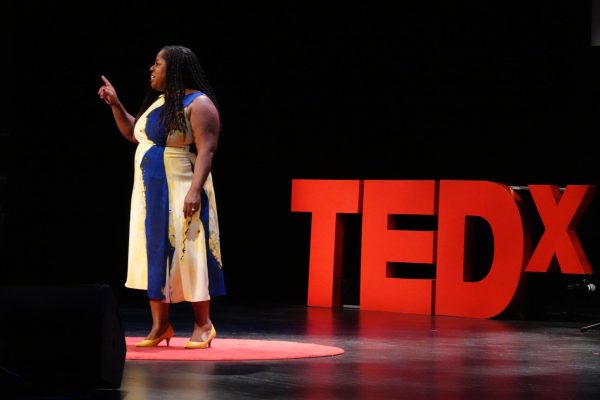
Corrinne Tarver continued the afternoon by speaking on her experiences as one of the few Black women in gymnastics. Tarver, the first Black gymnast to attend the University of Georgia and to win an NCAA All-Around title, now coaches at Fisk University, the first historically Black university to have a gymnastics team.
“On the developmental level, [the sport] loses most athletes of color because of preconceived notions of what athletes of color can do,” Tarver said. “It’s very difficult to stay when you don’t feel like you belong.”
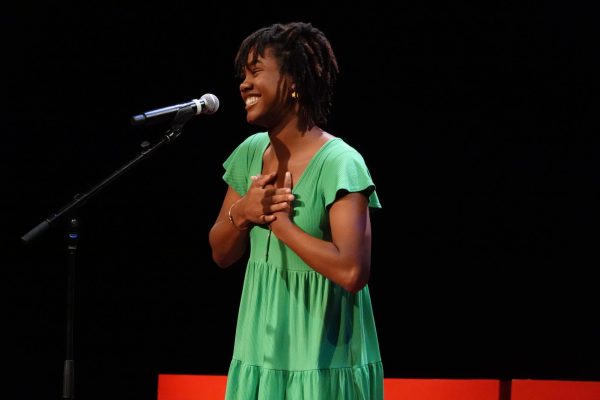
After Tarver’s speech, Sarah Anderson, a member of Southern Word, a non-profit youth organization, performed spoken word about intergenerational female relationships.
“Every day, I walk in the shoes of the matrons that made me,” Anderson said, discussing the ways her grandmother, aunts, mother and sister shaped her perspectives.
The event’s final speaker was Jocelyn Mangan (BA ‘93), an advocate for inclusive capitalism, who discussed the power of bringing women into rooms where decisions are made. She acknowledged the increase of women in the corporate world but emphasized the disparities between women and people of color in corporate positions and across corporate boards.
According to Mangan, the lack of diversity on corporate executive boards is a result of the recruiting process, which she said emphasizes informal networking between people who already know each other and rarely involves an interviewing process.
“Solving board diversity isn’t a pipeline problem. It’s a network problem,” Mangan said. “I want my son and daughter to see a different room.”

